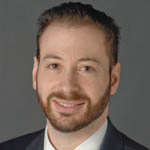 |
| Todd Kolm, senior vice president of strategy and insight for Wego Health Solutions |
We're all familiar with the Big Pharma advertising cliché: Smiling couples stroll through meadows; happy families enjoy a leisurely afternoon on the beach. But those sunny images can feel inauthentic to patients who need drugs most, according to a new survey from Wego Health.
About a quarter of patient advocates don't see themselves when they look at ads for their own medications, Wego found. That could be a problem: The 31 activists Wego surveyed represent an average of 1.7 million consumers across four conditions--cancer, diabetes, inflammatory bowel disease (IBD) and rheumatoid arthritis (RA).
Images of healthy-looking models can seem fake to patients on the receiving end, Wego SVP Todd Kolm told FiercePharmaMarketing. The clinical approach can be a turnoff, too. Companies' attempts to build goodwill--such as financial support for their meds--can fall short, because patients can't attribute the goodwill to a particular person.
Companies have been inviting patients to the table to help fix that problem, Kolm said. Rather than using old-style focus groups, which bring people together for feedback about a particular campaign, drugmakers are setting up advisory panels to get feedback over time. That approach offers a "meta view" of a particular patient community, Kolm said, and a better understanding of how they view a brand's marketing.
"It's continuously iterative," he said. "You can develop a partnership with the patient through the leaders and invite them to the virtual table. And by opening that door to them, you can establish a deeper relationship."
Andrea Meyer, co-founder of an advocacy group dubbed The Great Bowel Movement, told FiercePharmaMarketing that getting patients together this way--and truly listening to their opinions--could help drugmakers figure out how to better reach their target markets.
"For some reason, there's an inherent lack of trust of the industry on the patient side. There's discomfort sharing candid information," Meyer said in an interview. "I would love to see open conversation one day between patients and the industry."
That conversation could lead to more effective advertising, Meyer said. "I know companies' hands are tied in a lot of ways, and they can't have free rein to do whatever they want," she said. "But I think they need to make ads more compassionate and less clinical."
Wego declined to name specific companies using patient advisory panels to tailor their advertising, but Kolm mentioned a diabetes brand team that wanted to launch a specific initiative. The company got feedback from patient community leaders, and then circled back later in the year to show how they'd applied the patients' insights.
The patient leaders were "astonished" that the drugmaker asked for their opinions and listened to them--and even more surprised when the company used that feedback to engage the broader patient community, Kolm said. Patients felt as if they weren't just getting lip service, but were actually part of the process.
"By establishing the deeper connection with the patient or patient community, the companies are more likely in the long run to develop a stronger relationship that commands brand respect and loyalty," Kolm said. "They're starting off with not only a mouth, but an ear. And that's what patients appreciate."
- here's a link to the white paper (reg. req.)